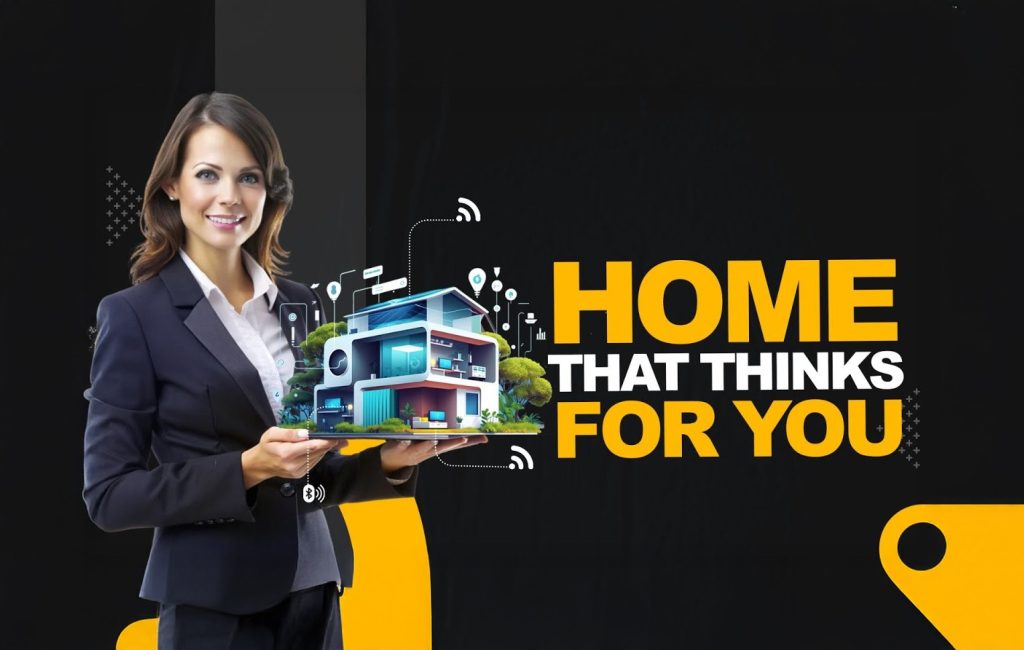AI-Powered Smart Homes: A Tour of the Future
Welcome to a new era of living, where AI makes your home smarter than ever! Ever wondered how artificial intelligence is transforming the spaces we live in? What if your home could adapt to you—before you even ask?
Imagine this: the lights turn on automatically as you enter, the door unlocks with facial recognition, your coffee is ready just as you wake up, and your favorite playlist starts playing without a word. This is not science fiction. This is the reality of AI-powered smart homes—houses that think, respond, and even anticipate your needs.
Let’s take a tour through the home of the future.
The AI-Powered Brain of the Home
At the core of every smart home is an AI-powered hub—the “brain” of the house. Systems like Google Assistant, Amazon Alexa, and Apple HomeKit integrate multiple devices, creating a seamless ecosystem.
From managing lighting and climate control to monitoring security, AI transforms everyday tasks into effortless experiences. More than automation, these systems learn your preferences and evolve over time, creating a home that feels personal, responsive, and intelligent.
Intelligent Climate Control
No more fiddling with the thermostat. AI-powered climate systems learn your daily habits and automatically adjust to keep your home comfortable.
- Example: Warming the house before you wake up or cooling it before you return from work.
- Benefit: Increased comfort while saving energy and reducing bills.
AI isn’t just smart—it’s sustainable.
AI in Home Security
Security has reached a new level of intelligence. AI-driven surveillance systems now:
- Recognize familiar faces and differentiate between strangers and visitors.
- Detect unusual activity and send alerts to your smartphone.
- Integrate with smart locks for safe, keyless entry.
This ensures peace of mind, with fewer false alarms and stronger protection.
Smart Kitchens & AI Chefs
Your kitchen is evolving, too. AI-powered appliances transform how we cook and eat:
- Smart fridges track food inventory and suggest recipes.
- AI cooking assistants guide you step-by-step, adjusting time and temperature for precision.
- Smart ovens help prepare meals with consistency and ease.
In other words, your kitchen is no longer just a place to cook—it’s becoming a partner in wellness and convenience.
AI-Powered Home Entertainment
Movie nights just got better. AI entertainment systems create customized experiences by:
- Adjusting lights to set the perfect ambiance.
- Recommending shows or music based on mood and history.
- Syncing across devices for a seamless experience.
Your home doesn’t just entertain—it knows what you like.
AI-Driven Home Maintenance
Maintenance and chores are also getting smarter.

- Robotic vacuum cleaners keep floors spotless.
- Smart lawn mowers manage your garden.
- Self-cleaning devices handle tasks with minimal input.
Your home doesn’t just serve you—it takes care of itself.
The Future of Living: Smarter Than You Think
AI-powered smart homes redefine convenience, safety, and sustainability. They learn, adapt, and anticipate—making life not only easier but also more efficient.
The question is no longer if smart homes will shape our lives, but how soon we’ll live in one that truly understands us.
What feature excites you most about AI-powered smart homes? Share your thoughts in the comments!
For further assistance, visit our channel and refer the video
Meet the Home That Knows What You Need | @turilytix | Smart Homes using AI

References
- Gershenfeld, Neil. When Things Start to Think. Henry Holt and Co., 1999.
- Kelly, Kevin. The Inevitable: Understanding the 12 Technological Forces That Will Shape Our Future. Penguin Books, 2017.
- Mims, Christopher. Arriving Today: From Factory to Front Door—Why Everything Has Changed About How and What We Buy. Harper Business, 2021.
- Nilsson, Nils J. The Quest for Artificial Intelligence: A History of Ideas and Achievements. Cambridge University Press, 2010.
- Russell, Stuart, and Peter Norvig. Artificial Intelligence: A Modern Approach. 4th ed., Pearson, 2020.
- Shapiro, Carl. Information Rules: A Strategic Guide to the Network Economy. Harvard Business School Press, 1998.
Share This :

